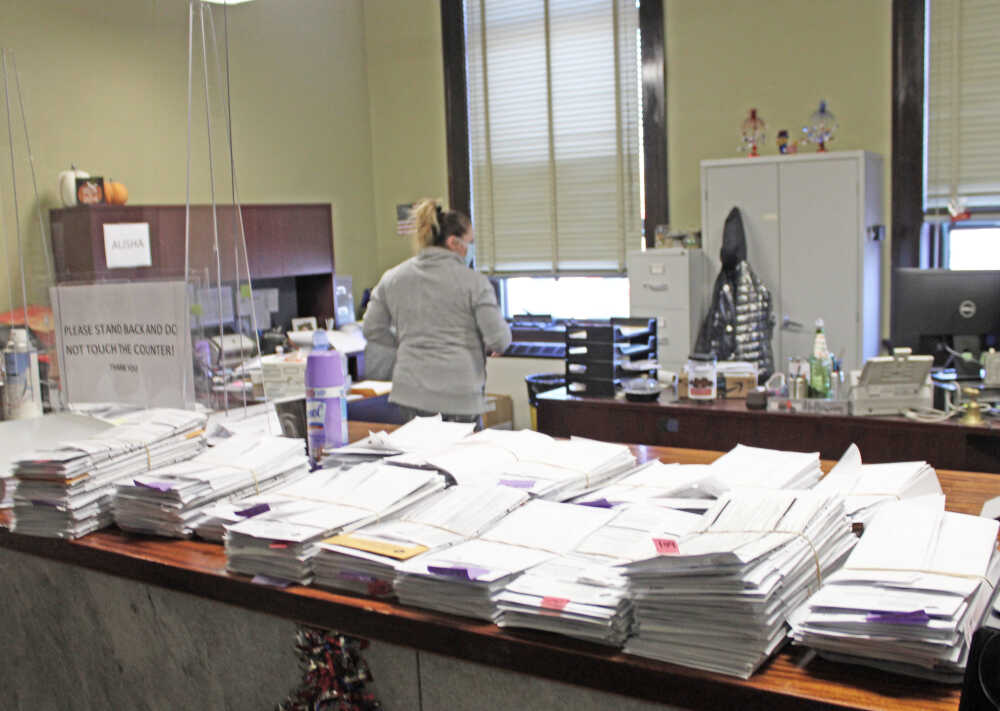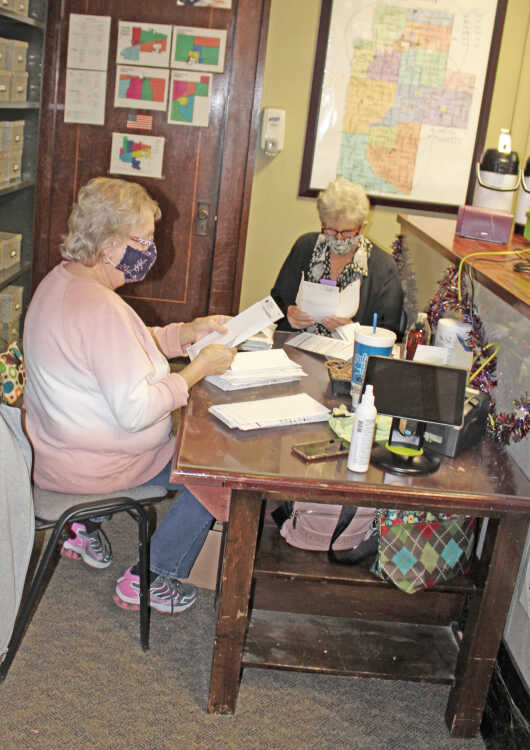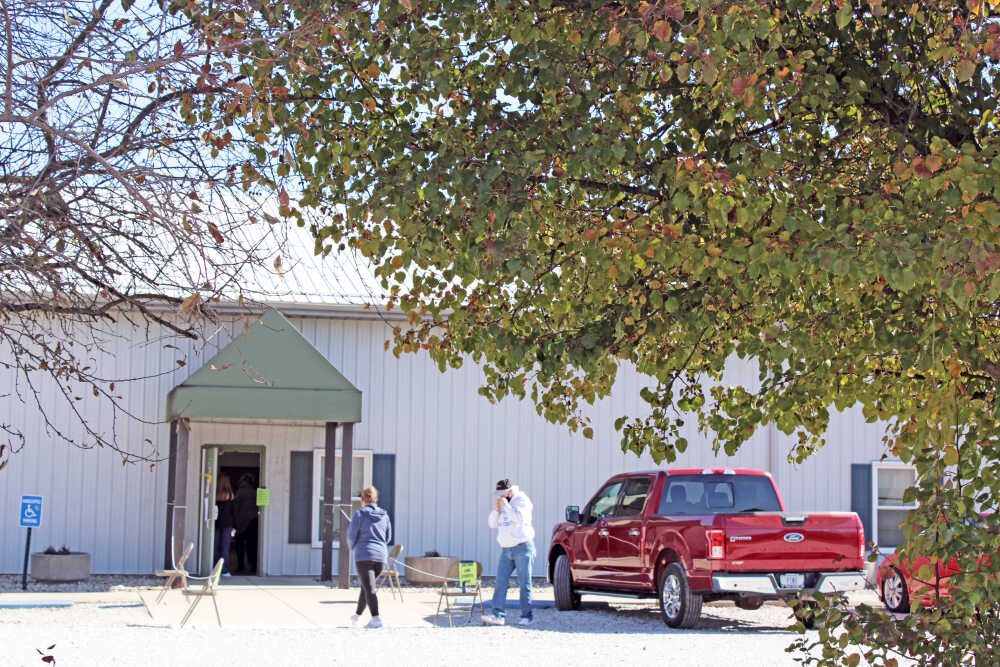Election Day in Clay County and COVID-19

As voters get out to vote across America in the 2020 General Election Tuesday, local election officials confirmed COVID-19 created an unusual problem.
Clay County Election Clerk Anola Gallion was apprised of an unidentified local resident who tested positive for COVID-19 Monday and was placed in quarantine. At the last minute, the unidentified voter requested to vote absentee.
Gallion explained the State of Indiana has offered many options for voting early during previous elections.

Indiana is one of the 24 states in the US and the District of Columbia that provides early in-person voting (including two Saturdays). Indiana provides 28 days before the election and offers absentee ballots by mail to voters who will not vote in person. (Voters have to meet absentee-by-mail requirements to be eligible to request a ballot by mail before Thursday, October 22, 2020, at 11:59 p.m.)
Some voters are eligible to cast their votes through the use of the traveling board.
All other voters are expected to vote in person.

Voting is a personal responsibility and has been promoted by many organizations this year such as “Make A Plan To Vote.”
Sometimes circumstances make it hard or impossible for a person to cast their vote on Election Day, which is why most states have designated early voting periods. The COVID-19 pandemic created an even more significant reason for people to make their own arrangements to vote.
Indiana is one of 38 states allowing emergency absentee voting under these circumstances due to a medical emergency such as unforeseen illness, confinement to a medical facility, disabilities, or accidents resulting in injury.
Indiana code 3-11-4-1 (b): A county election board, by unanimous vote of its entire membership, may authorize a person who is otherwise qualified to vote in person to vote by absentee ballot if the board determines that the person has been hospitalized or suffered an injury following the final date and hour for applying for an absentee ballot that would prevent the person from voting in person at the polls.
Gallion said that once notified of the request to vote by absentee ballot Tuesday due to testing positive for COVID-19, the bi-partisan Election Board reviewed the request. Still, they were unable to agree (according to Indiana Code) to a resolution unanimously.
The rationale used by the board members included:
1 - There was ample time and multiple ways to vote early this past month.
2 - The deadlines to qualify for absentee voting and participate in early voting through the traveling board has passed.
3 - If approved, the traveling board members would be visiting a home quarantined for COVID-19, not once, but twice: Once to fill out the qualifying application and then to return for the voting process.
“Our traveling board members, who are older, are currently working the polls. Finding traveling board workers who were willing to risk COVID exposure was difficult in the first place. Doing so at the last second has proven to be impossible,” said Gallion, who admits it’s an upsetting situation. “People don’t want to knowingly risk the exposure. At the same, there is nothing to stop a COVID positive voter from going to the polls to vote except their own moral scruples. We appreciate people being considerate of others in an unfortunate situation.”
Gallion said the Election Office is there so that everyone gets the opportunity to vote.
“That’s our job, but, at the same time, there has been ample time to vote early. People have been told to do that because of COVID-19 for months.”
Election Board President Evelyn Brown understands the voter is upset at the situation but agrees that voting is about taking personal responsibility.
“The ‘Make A Plan To Vote’ campaign has been all over the place telling people to vote early in case of this type of situation,” said Brown.
Sarah Froderman, Republican Election Board chairperson, said “We have to keep the health and safety of our poll workers in mind. So many have dropped out this election due to illness that we had no alternate poll workers left by today who are trained and ready to serve such extreme cases. We did not make this decision lightly.”
By late Tuesday afternoon, Gallion contacted the Indiana State Election Division, which informed her the local Election Board’s decision not to send the Traveling Board was OK.
“We have not told the resident that they could not go vote at a voting center,” said Gallion. “It’s up to the voter to weigh that risk.”
Ultimately, local officials at the Election Office and poll workers were able to create a way so the voter could cast their vote while maintaining the safety and health of all involved.
The Indiana Election Division sent guidance to county election officials on polling place safety issues due to COVID-19. Poll workers will be washing their hands and sanitizing surfaces frequently. They should wear masks, use gloves, and observe, whenever possible, the six-foot social distancing guidelines.
However, the guidelines cannot require voters themselves to follow any of those safety procedures. State election officials say to turn away voters for not wearing a mask, for instance, would violate the constitutional right to vote.
But there is the prohibition against certain types of face mask/coverings or clothing that voters cannot use to express support or disapproval of a candidate, a political party, or a public question while voting.
Gallion reminded voters, “It is actually against the law to wear campaign clothing or even discuss your voting plan in the polling place.”
